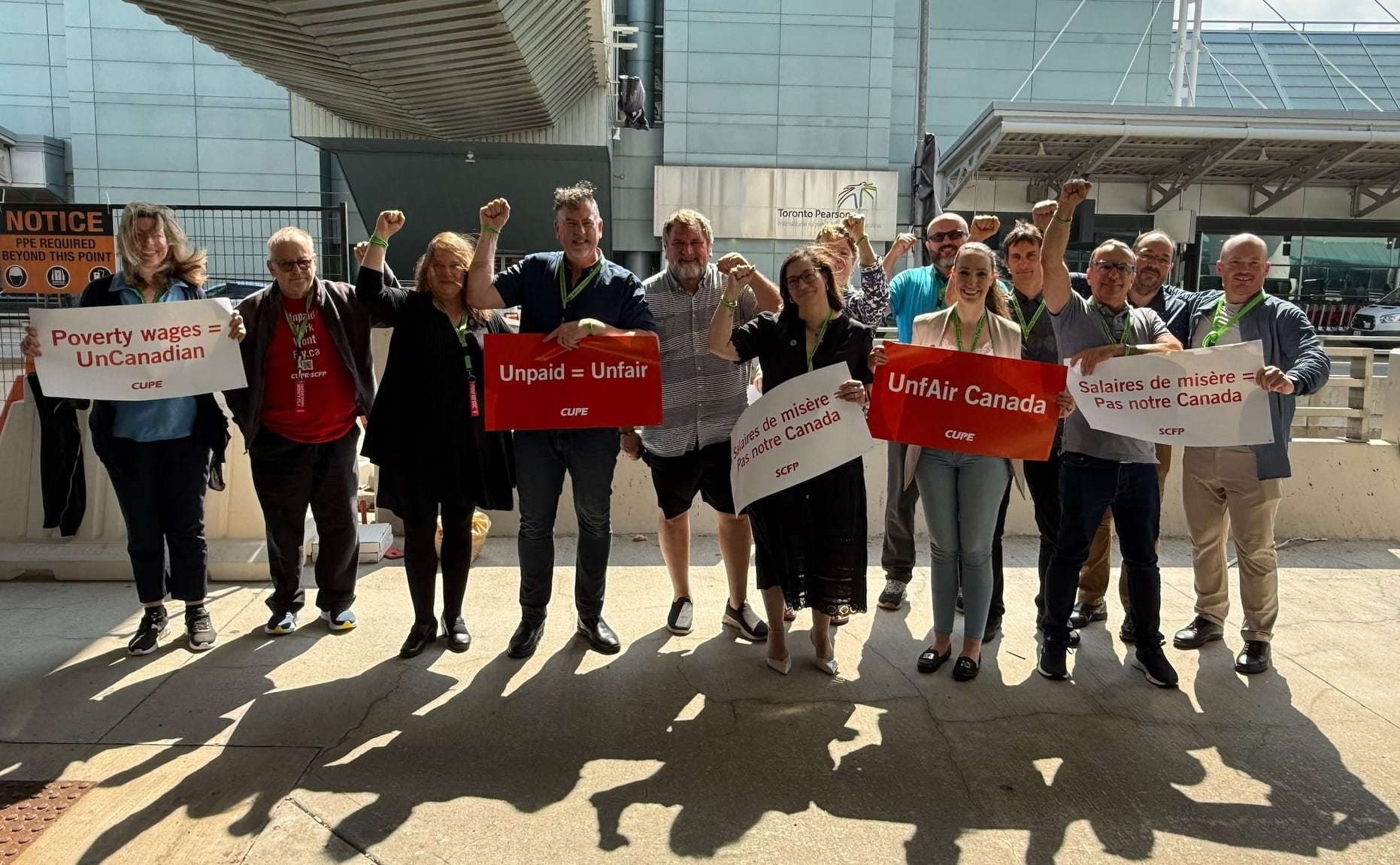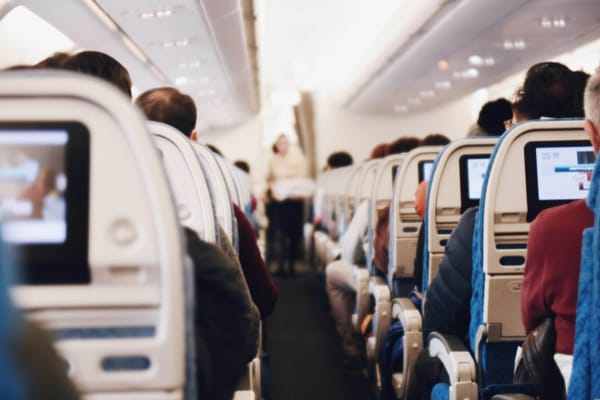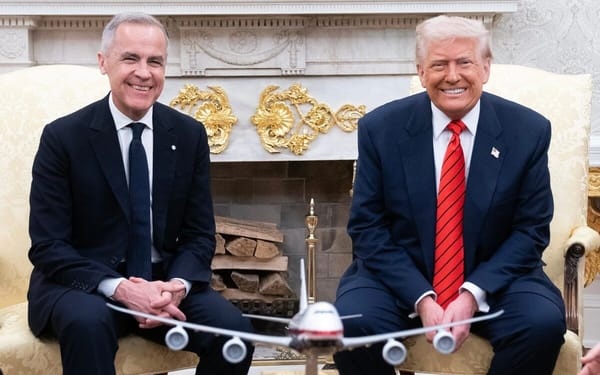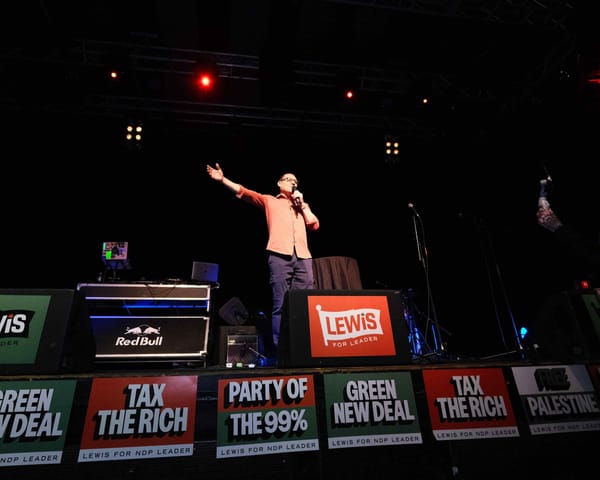
This past week will be remembered as a critical moment in Canadian labour history, as more than 10,000 Air Canada flight attendants defied an unjust back-to-work order, courageously struck and forced their employer and the federal government to stand down.
After delivering an impressively strong strike mandate vote, Canadian Union of Public Employees (CUPE) flight attendants at Air Canada walked off the job on August 16. Within hours, Minister of Jobs and Families Patty Hajdu heeded the company’s call for intervention and quickly directed the Canada Industrial Relations Board (CIRB) to issue a back-to-work order and send the parties to arbitration.
“Air Canada asked the government to crush underpaid flight attendants’ Charter rights, and Jobs Minister Patty Hajdu only waited a few hours to deliver,” CUPE said in a press release following the CIRB directive.
As CUPE Local 4092 vice-president Lillian Speedie told CBC from the picket line at Toronto Pearson International Airport, “snowstorms have shut down Air Canada for longer than we were allowed to strike."
Once again, the federal government trotted out its new favourite cudgel for smashing strikes: s.107 of the Canada Labour Code.
Until last year, even seasoned labour observers had little knowledge or paid scant attention to this obscure provision. But since the Liberals have interpreted the law’s vague language around promoting “industrial peace” to confer the ability to intervene in any strike they find inconvenient, workers have faced an onslaught of repression.
Confident that government intervention would do the trick, Air Canada prematurely announced it would resume flights by the evening of August 17. CUPE had other plans.
Rather than comply with the government’s order and challenge it in court later, as other unions are doing, CUPE instead resisted and continued its “illegal” strike.
Standing in front of cheering flight attendants, CUPE National president Mark Hancock defiantly tore up the CIRB back-to-work order and told workers the strike would continue until a deal was reached. Hancock later relayed to reporters that he was willing to go to jail to secure an agreement for members.
CUPE’s airline component reassured striking workers that only union leadership could face punishment and that the correct course of action was to remain on strike. Highlighting the particular unfairness of the CIRB decision, the union further pointed out that the Labour Board chairperson who first issued the order was previously Air Canada’s lawyer.
Meanwhile, the Canadian Labour Congress (CLC) convened an emergency meeting of heads of major unions across the country to co-ordinate financial and other support for CUPE.
The militant opposition was contagious. Picket lines were raucous at major airports around the country, as flight attendants, members of other unions and supporters turned out in droves.
By Monday night, Air Canada was back at the bargaining table, with the parties reaching a tentative agreement in the early morning hours.
“The fact that we didn’t back down — the government and the company got the message that we weren’t going to react to their demands, their threats, legal action, jail time, whatever it was,” Hancock told CBC.
The Canadian labour movement owes Air Canada flight attendants an enormous debt. Facing the government down took tremendous courage. Workers across industries can look to this example for inspiration.
The strike also demonstrated three important things when it comes to s.107. First, it confirmed that the government’s repeated use of back-to-work orders is corroding collective bargaining by signalling to employers that they can depend on government interference, just as labour relations experts have been warning.
The Liberals have failed to learn the lessons of the past, as Barry Eidlin, an associate professor of sociology at McGill University, put it in The Globe and Mail. By refusing to respect free collective bargaining and the right to strike, the government provoked the very thing it tried to prevent.
As CUPE itself said during the strike, “Contrary to the Minister’s remarks, this [back-to-work order] will not ensure labour peace at Air Canada. This will only ensure that the unresolved issues will continue to worsen by kicking them down the road. Nor will it ensure labour peace in this industry — because unpaid work is an unfair practice that pervades nearly the entire airline sector, and will continue to arise in negotiations between flight attendants and other carriers.”
Second, it revealed potential unease at the CIRB over the government’s abuse of the Board’s ostensible independence and neutrality. Interestingly, the CIRB chose not to file their back-to-work order in federal court, which rendered it unenforceable for the time being. According to the Board, it found the prospect of enforcing the order “unduly punitive and not conducive to harmonious labour relations and constructive collective bargaining.”
This suggests that the Board was uncomfortable with the Liberals’ heavy-handed approach, despite largely acting as “the stenographer for the government,” as Chris Roberts, the director of social and economic policy at the CLC, aptly put it.
Last, the strike demonstrated that employers are already thinking of s.107 as a lawful and regular feature of federal labour law, a position likely to be proven false when courts finally hand down decisions in cases from last year involving rail and port unions. Air Canada’s CEO, Michael Rousseau, himself admitted on BNN Bloomberg that the company made no plans to assist customers ahead of a possible strike because it expected the government to “enforce” s.107.
Many observers hope CUPE’s strike will force the government to refrain from using s.107 in the future. CLC president Bea Bruske went even further, telling CBC that she thinks the flight attendants’ defiance has rendered the contentious provision effectively dead. The CLC has further announced plans to work with its affiliates to pressure the government to remove s.107 from the Canada Labour Code entirely.
While the labour movement begins co-ordination to lobby for reform, the government so far has given no indication that s.107 is on the chopping block. Instead, Hajdu announced a “probe” into unpaid work — a central issue in the strike.
Removing the legislative provision or at least compelling the government to cease deploying it unilaterally to end strikes would be a significant achievement, but such an outcome is far from certain. Legal challenges launched by the Teamsters and other unions are likely to go to the Supreme Court and could take years to resolve.
Further, although the government may think twice in the future about using s.107 against a union with the size, resources and public support of CUPE flight attendants, there’s no guarantee they won’t feel emboldened to again drop the hammer on a weaker target.
Thorny questions also remain concerning the terms on which CUPE ended the strike.
As important as CUPE’s defiance proved, the union did not require the CIRB order to be withdrawn as a condition of restarting negotiations or of presenting a tentative agreement to workers. This means that members at Air Canada are now voting on the proposed deal with the threat of arbitration still hanging over their heads.
Under normal circumstances, a union bargaining team would present the tentative deal to the membership, who would then decide if the contract is satisfactory. Voting a tentative agreement down would typically mean heading back to the picket line. Without removing the threat of the CIRB order, a ‘no’ vote in this case means either forced arbitration or resuming an ‘illegal’ strike — an option that union leadership appears not to countenance and would be extremely difficult to explain to the public after celebrating the tentative agreement as a historic win.
Under these circumstances, members must now decide if the proposed deal goes far enough. According to the union’s summary, lower seniority members will see an immediate 12 per cent raise, with an additional 8.25 per cent over the remaining three years. More senior flight attendants would receive 8 per cent in the first year.
Though the tentative agreement doesn’t immediately provide flight attendants with full pay for ground work, it does compel Air Canada to begin compensating flight attendants for previously unpaid hours, with the percentage of pay increasing in each year of the contract. The union’s demand to end unpaid work is, technically, realized.
We’ll have to wait until September 6 to find out if CUPE members find the full contract package acceptable.
For now, we should celebrate the courage and resolve of flight attendants across the country, while still recognizing that the fight against unjust government interference is far from over.
Recent Class Struggle Issues
- August 18 | Chrétien-Era Austerity Levels May Soon Return Under Carney
- August 11 | The Sky Is The Limit For Airline Workers’ Labour Militancy
- August 5 | Labour Mishandled The Government’s Bill C-5 Power Grab
- July 28 | The Income Gap In Canada Has Reached A Record High







